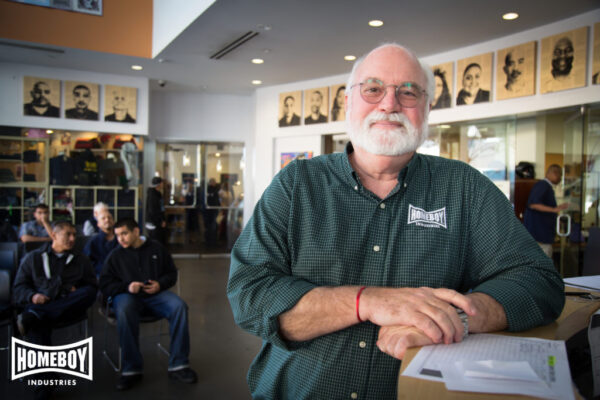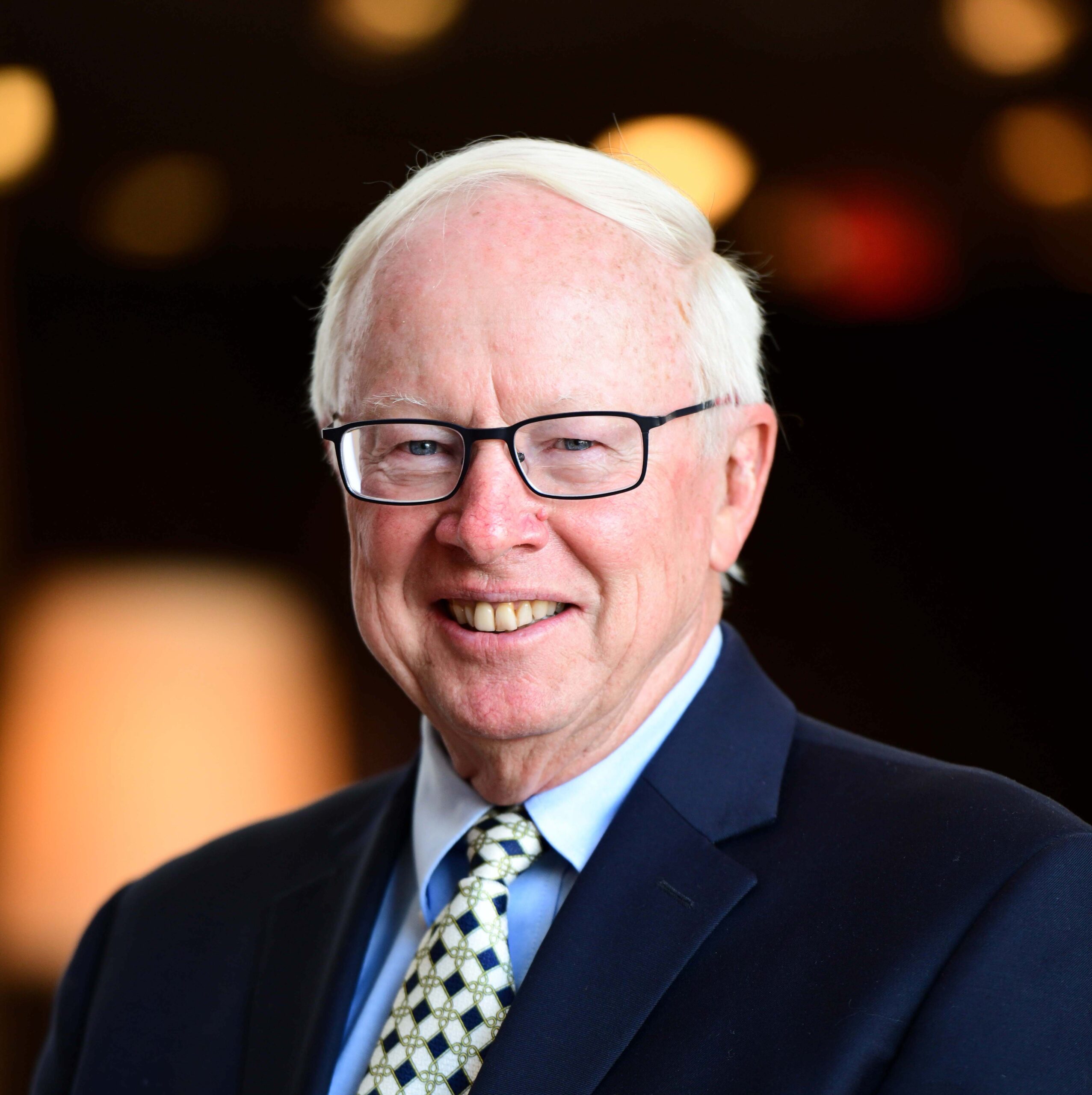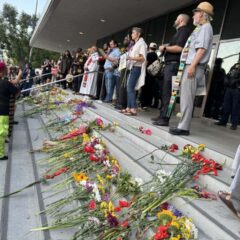This article was originally published on Religion Unplugged, with the support of CRCC’s global project on engaged spirituality.
The founder of the largest gang intervention, rehabilitation and prison reentry program in the world is a mystic, a Jesuit priest who does not believe that God has a plan for your life. Having buried 260 young men and women, Father Greg Boyle rejects the idea that it is God’s plan that anyone should die of a gang member’s bullet.
I first met Fr. Greg 30 years ago when he was a lot skinnier and the priest at Dolores Mission in Boyle Heights, Los Angeles. This was a time when gang violence was at its peak, and the mothers of the neighborhood used to do peace vigils, walking the streets at night, petitioning their sons to put away their guns.
At that time, Fr. Greg thought the solution to gang violence was good employment, offering the motto that “Nothing stops a bullet like a job.” I visited one of the first social enterprises he started — a silk screening operation where members of different gangs were working side by side.
We reunited last year as part of a research project I’m conducting on exemplary humanitarians to understand the role of faith in motivating and sustaining their work. In the past 35 years, Homeboy Industries expanded into a $40 million a year organization, and Fr. Greg has become a bestselling author.
Sipping cappuccinos outside the Homeboy Bakery, I casually interacted with “homies” there for work, counseling, or a tattoo removal session. I was curious how Fr. Greg was perceived by the patrons. Was he the real deal or just a good storyteller in his books?
I found the homies come not only for the services, but also for the spirit and values that the priest has infused into the technically secular nonprofit. While Fr. Greg still believes employment is important, as evidenced by the hundreds of former gang members and recently incarcerated people who work in Homeboy’s bakery, recycling program, and solar energy project, Fr. Greg has come to a deeper truth: That personal transformation requires healing the scars that prevent people from realizing their unshakeable goodness, their nobility in God’s eyes. He believes in restorative justice — reconnecting people with their wholeness.
Being something of a skeptic, this what I find to be both exemplary — and unsettling — about Fr. Greg and the humanitarians I have had the privilege to get to know through my research: Their beliefs and practices allow them to develop a consciousness of ideal relations in which all beings are sacred, and hope and possibility exist regardless of the circumstances. They envision a world entirely different from our own and work to create it.
Whether working with gang members, caring for genocide survivors, stitching up the wounds of civil war, or giving hope and tangible assistance to impoverished people, modern-day saints like Fr. Greg challenge us and show us how to live with a deeply rooted sense of purpose.
‘Like a monk’
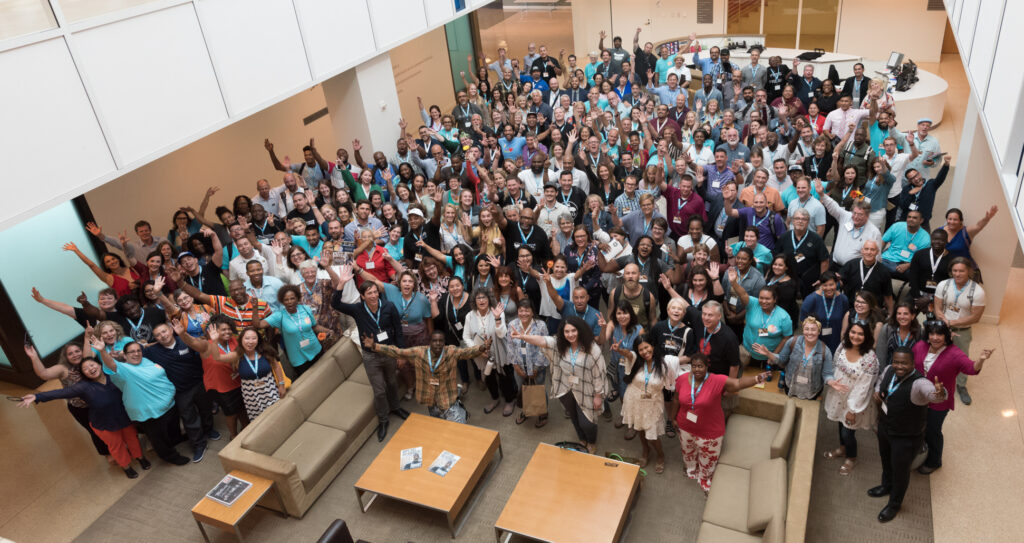
My first attempt at a sit-down interview with Fr. Greg was aborted. Dozens of people were waiting their turns to meet with “G,” as the homies called him.
When I sat down opposite Fr. Greg’s desk and pulled out my tape recorder, explaining my intentions, I had barely gotten out my first question when Greg said, “Don, this is not going to work. We need a quiet place.” In the brief time I had been there, someone had already interrupted us with the need for a signature, and various homies kept waving to him as they passed by his glass-enclosed office.
On a typical day at Homeboy, Fr. Greg sees homie after homie. Listening to them. Hearing their challenges. Asking them about their goals. One time I sat by his desk for a while, and he was writing check after check, helping this person with rent, and another with groceries. Homies melt into a bear hug, their face buried in his shoulder. He puts his hand on another homie’s shoulders, looking at him with a singular focus that makes them feel like they are the most important person in the world.
“Once I hit the office, I’m not going to be able to do anything,” he told me 10 days later, this time meeting in my house. “I’m not going to be able to do an email, check my cell phone.”
We sat for several hours as I probed him about things that were not in his books. To my surprise, he said that he gets up every morning “like a monk” at 2:45 a.m. When his feet hit the floor, he said: “I breathe in and out and make the sign of the cross while saying, ‘Through Him, and with Him … in the unity of the Holy Spirit … all glory and honor is yours, Almighty Father, forever and ever. Amen.’”
Then, after his first cup of coffee, he said that he does his “grounding walk,” slowly walking on the brick path that surrounds his house. Then he returns to his room, where he said that he has a corner with a little altar. He lights some candles, sets a timer, and then does what he calls his “breathing thing.”
Asked about this practice, he says that he can’t distinguish between meditation and prayer. Perhaps this reflects his reading of various mystics and interactions with Buddhists like Pema Chodron.
He says that he is a bit of a political junky, so while it is still early, he glances at The New York Times, the Los Angeles Times, Politico, The Huffington Post and Punchbowl News. He also checks email and interacts briefly with Sergio, a former gang member and his spiritual director, in an exchange of emails about the scripture of the day.
At exactly 7 a.m., he and Mark Torres, another Jesuit who lives in his house and works at Homeboy, iron their shirts together and check-in about various homies and their ups and downs. He then showers and heads to the office, often swinging by the bank since, as he says, “I’m the priest that the homies mistook for an ATM machine.”
At the end of the day, Greg does what he calls an “Ignatius thing” — the Examen or “discernment of spirits” — looking back on the day, reflecting on the highs (Consolation) and lows (Desolation), contemplating his response to different events and issues. He then falls into bed and tries to get six or seven hours of sleep before rising early the next morning.
Fr. Greg is no lone-ranger guru. His work at Homeboy Industries has a context. He is a Jesuit who went through a period of formation as a young priest and continues to operate out of the rich tradition of the Jesuits, including various practices initiated by the founder of the order, Ignatius.
Like most Jesuits, Fr. Greg lives in community. Every Sunday night, one of the five priests is responsible for dinner, and they eat together. This is a time of fellowship.
On Monday night at 7 p.m. they share the Eucharist and some readings, exchanging various lights or darkness they are experiencing, much like the members of a close-knit family might share the highlights and burdens of their lives. He and a few other Jesuits also go on annual 8-day retreats, where they practice silence during the day.
His community goes beyond the Jesuits as well. Fr. Greg has at least two other groups with which he meets on a regular basis. On Tuesday nights — ever since COVID — he logs onto an hour-long Zoom call with 10-12 friends, mostly ex-gang members, including some of his “dearly deported” who live in Mexico or Central America, and they discuss a passage of scripture or a theological concept, such as compassion. The convener of this group is Sergio, his spiritual director, who leads a very free-flowing discussion in which almost everyone participates.
Then, once a month, Greg connects with a group of professors and friends for a one-hour spiritual salon. He is the only Jesuit, although the gathering includes a former Jesuit with a severely disabled daughter who lives with him in a L’Arche community in Portland, Oregon. One of the first books they read together was the classic novel by Dostoevsky, The Brothers Karamazov, and now they are onto reading short stories. This discussion is more philosophical than the Tuesday night group, and they cover a variety of topics, including what they believe and no longer believe.
The making of a mystic
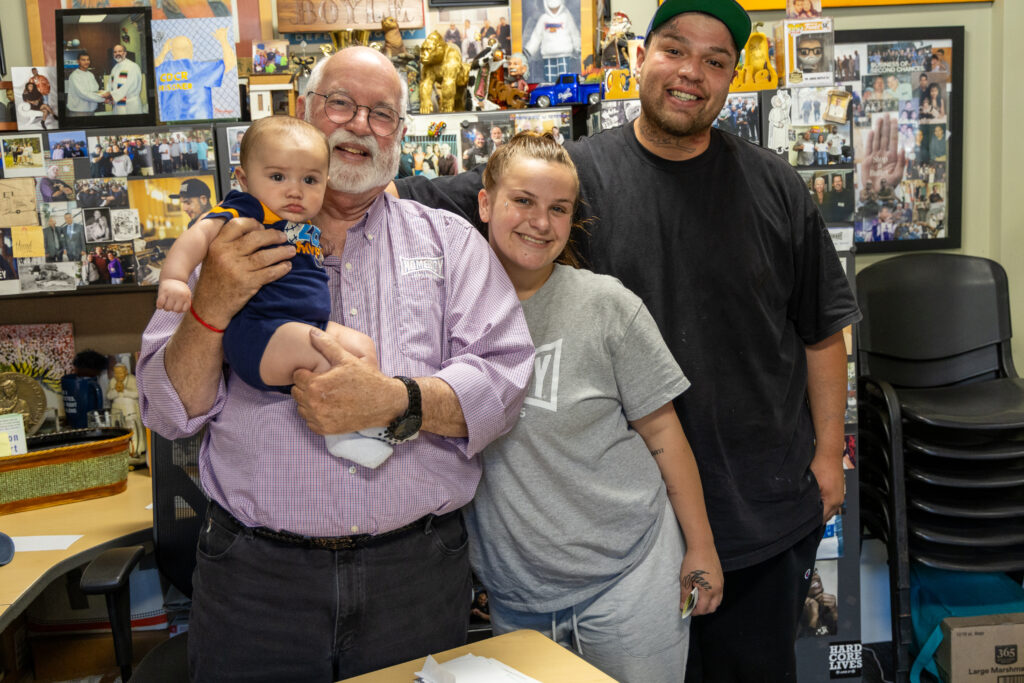
However traditional Fr. Greg may be in his practice as a Jesuit, he draws on the mystical tradition of Meister Eckhart, Teresa of Avila and others to embrace a non-dualistic view of God. Like Eckhart, he sees many characterizations of God as human projections. God is not judgmental; God does not get angry; God is not dependent on our love. God is not a string-puller who saves some people from car crashes but vengefully kills others. No, God loves us unconditionally.
The practice of Jesuits and many religious orders, both male and female, includes periodic 30-day silent retreats. Midway through his second 30-day silent retreat, 10 years after his ordination as a Jesuit priest, Fr. Greg says that he had a mystical experience that changed his understanding of God.
He felt his father coming behind him as he was sitting alone in the chapel, gently rubbing his neck as he used to do as a teenager while Greg was eating breakfast and reading the Los Angeles Times. There was something enormously comforting, physical, and real about this experience, which was accompanied by an overwhelming realization of the love of God—that the essence of God is love. Recalling this experience, Fr. Greg said he cried as he sat alone in this chapel, “as only one can after having been massaged into a newfound sense of sacred presence, deepened peace, and an unshakable holy assurance.”
One of the hallmarks of mystics is direct and unmediated experiences of God. According to the great American philosopher and psychologist William James, mystical experiences have a “noetic” quality that defy rational explanation. Yet they are often life-transforming. One has had an experiential glimpse of a reality that goes beyond theological dogma or institutional authority.
For Fr. Greg, this experience was liberating. In his books and public presentations, he often quotes Mirabai Starr, who says, “Once you know the God of love, you fire all the other gods.”
One needs to filter out all dualistic thinking about God — who God loves, rejects, punishes, and so on, Fr. Greg says. God does not have an evil twin, Satan. Such notions are human projections calculated to blame, separate, and demonize. God is love. God only sees our unshakeable goodness, our nobility, and seeks for us to wake up to our goodness—not “shape up” which is the moralizing view of God.
In Fr. Greg’s words, one needs to “smoke out what’s fear-based, what’s a museum piece, what God doesn’t give two toots about.”
Once you know the God of love, you filter things out, including magical thinking. Some biblical narratives need to be purified. The man Jesus healed was not possessed with demons; he had epilepsy. The wrathful God of the Old Testament reflects the human struggle to explain certain things.
Since Fr. Greg often quotes mystics from non-Christian traditions, I asked whether he has a pluralistic view of truth. In response, he offered an analogy, saying that he likes a particular brand of single malt whiskey. He said, it’s not the bottle that is important, but what it contains. He was born into Catholicism; it is the tradition he knows, and it is the background of most of the homies with whom he interacts. Therefore, he operates within that container and values it, saying mass on a regular basis; but he is unwilling to engage in dualistic thinking about other paths to truth, labeling them false or inadequate. He quotes Teresa of Avila who says, “All concepts of God are like a jar we break.”
Reconnecting to Wholeness
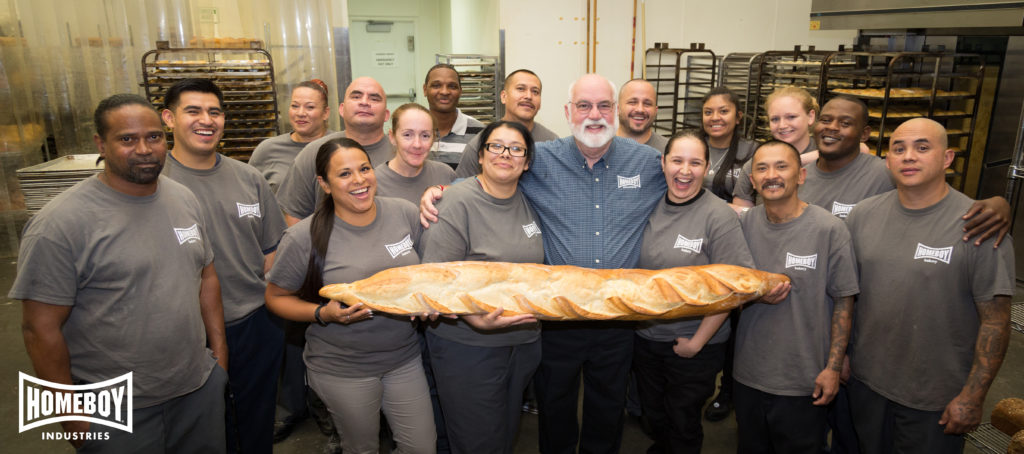
Homeboy Industries is not a religious program in a formal, institutional sense. In the ritualized morning meeting, which is about 15 minutes, there are announcements, an acknowledgement of the native lands where the building is located, the celebration of birthdays and positive events in the lives of some members, a “saying” for the day, a testimony of transformation, and a brief prayer delivered by one of the homies.
Occasionally, Fr. Greg will offer a blessing in his office to someone who is needing support, but he doesn’t mix up with any magic — just an affirmation that the individual is valued by God and loved.
The mystic way of Fr. Greg does not emphasize preaching moral values, except by his actions of love and support. Many of the homies call him “pops,” and he calls them sons/daughters. Most people come to Homeboy Industries feeling like “sh—,” said one homie in my interview. Now on staff, this fellow said that his father told him that he wished he had never been born. Drug abuse, alcohol, fractured families, and violence define the childhood of most of the patrons. They have become strangers to their inherent goodness, and religion with its labels of sin and evil have created a negative identity.
Fr. Greg says that it is an outsider’s view that gang members and incarcerated youth need to be taught moral principles. No, they need to be loved, not made to feel guilty. The work of Homeboy Industries is restorative justice — reconnecting people with their wholeness, their goodness. The method is unconditional love, second chances, third chances — an infinite number. People will often come to Homeboy, get a little dose of this love and affirmation, and end up back in prison. But they remember that experience of love, acceptance, and affirmation and return to Homeboy once they are out on parole.
The method is “extravagant tenderness,” as indicated in the subtitle to Fr. Greg’s latest book. Many other rehab programs focus on helping people make better choices. That is not their problem. They need to be cherished, not told the difference between right and wrong.
Fr. Greg says the wealthy think they made the right choices, and that is why they are successful. This is a bogus narrative, in his view. Not all choices are equal, especially given the childhood of most people entering the doors of Homeboy.
It is for that reason, says Fr. Greg, that Homeboy Industries is more about context than content. It is the context of tenderness and love that heals and provides the foundation for hope. Not the content of preaching moral values.
Nevertheless, content is not ignored in the 18-month program, which includes classes on anger management, parenting, and addiction — with two-thirds of the staff being graduates of the Homeboy program. It takes 18 months to reestablish the bonds that were broken in an abusive upbringing.
Mentorship: A Father-Son Relationship
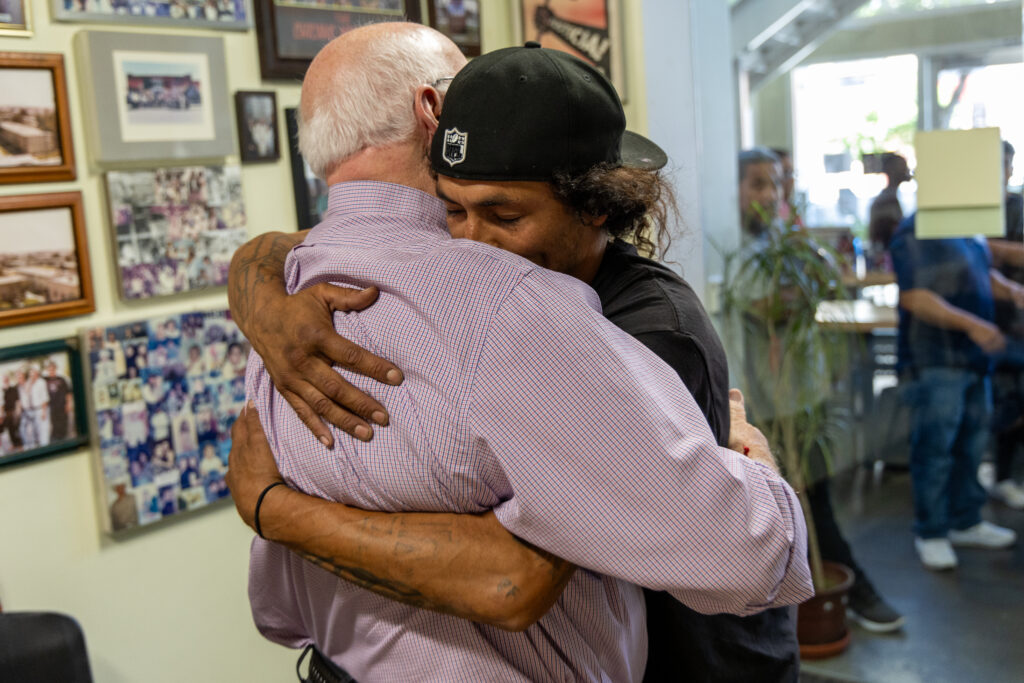
After my first meeting with Fr. Greg at Homeboy, he hooked me up with one of the case managers to facilitate my interviewing and hanging out. On my request, this 30-something Black man agreed to sit outside of the Homeboy bakery at a table and tell me his story.
He said that violence was at his door every day growing up. In 2001, his brother and two friends were shot and killed when they were visiting a friend’s house that was out of their territory. This brother was his role model and mentor. Shortly thereafter, another friend was killed. He said that after these deaths, “I started drinking just to get drunk and get the day over with so I wouldn’t feel the pain.” He was at the local liquor store when it opened in the morning. And at night, “I used to go to sleep with a bottle on my lap and a gun at my side.” After his brother’s and friends’ deaths, he said, “I just started hating everything. I didn’t have no love in my heart for nobody.”
He ended up in prison, where he had repeated nightmares about his brother coming to him. He got out of prison but didn’t know any other life than the way of the “hood” and ended up back in prison. But one day, he said, he woke up.
“I gave it to God. … I had to sit back and dissect it like — ‘Man, your brother wouldn’t want you doing shit like this.’” He realized that he needed to live for his brother, for the life that he couldn’t have. He said that his brother might have wanted to skydive, to go camping, to scuba dive. He needed to do these things for him.
It was in this frame of mind that he met Fr. Greg, or “Pops,” as he calls him.
“Growing up, I didn’t have that father figure for me. … To this day, he treats me like his son. And I say, G, I don’t look too much like you [he is African American], but I take it.” Continuing, he said: “I see him as a father figure more than a priest. … He relates to us with love and care and actual understanding, taking the time out to listen. That’s why his door is always open. … He believes in me when I didn’t believe in myself. … He be like, ‘You got this son, you got it.’”
He said when he came to Homeboy, they gave him “the ugly truth,” which is that “the hood sold me a dream.” At Homeboy, he found a community that cared about him. “Father G created an environment for us to be brothers and sisters.” He said that when you walk through the door, somebody is going to give you a hug. Somebody will make you laugh, and he tries to do the same. “It’s a family, the family that I never had.”
On one of his speaking engagements in Memphis, Fr. Greg took this case manager with him. Fr. Greg took him to a Martin Luther King exhibit, to Graceland — Elvis Presley’s House — and to a B.B. King Museum. When the young man returned from Memphis, he said he was different. “I seen all the sacrifices people made for me.” He had a different attitude about himself.
Although he is currently single, he said that his kids say, “Dad is not fucking up no more. He’s got a job.” He said, “I’m getting honest money now.” If one of his kids want a new pair of shoes, he can buy them for them.
As a case manager, he tries to mirror Father Greg. He said he tries to get his clients to “wake up.”
“You’re from the hood, yes. You’re from there, but that’s not who you are.” And when his clients screw up, he practices Fr. Greg’s attitude: “Okay, you messed up. You fell off the bike. Everyone makes mistakes.” And he helps them take the next small step of realizing some element of their dream.
Like Fr. Greg, he doesn’t just believe in second chances; he believes in third and fourth and an infinite number of chances. Also, like Fr. Greg, he believes there is a lot of healing to be done for his clients, and it doesn’t happen all at once. It occurs in small doses. “They don’t give up on you at Homeboy.”
Engaged Mysticism
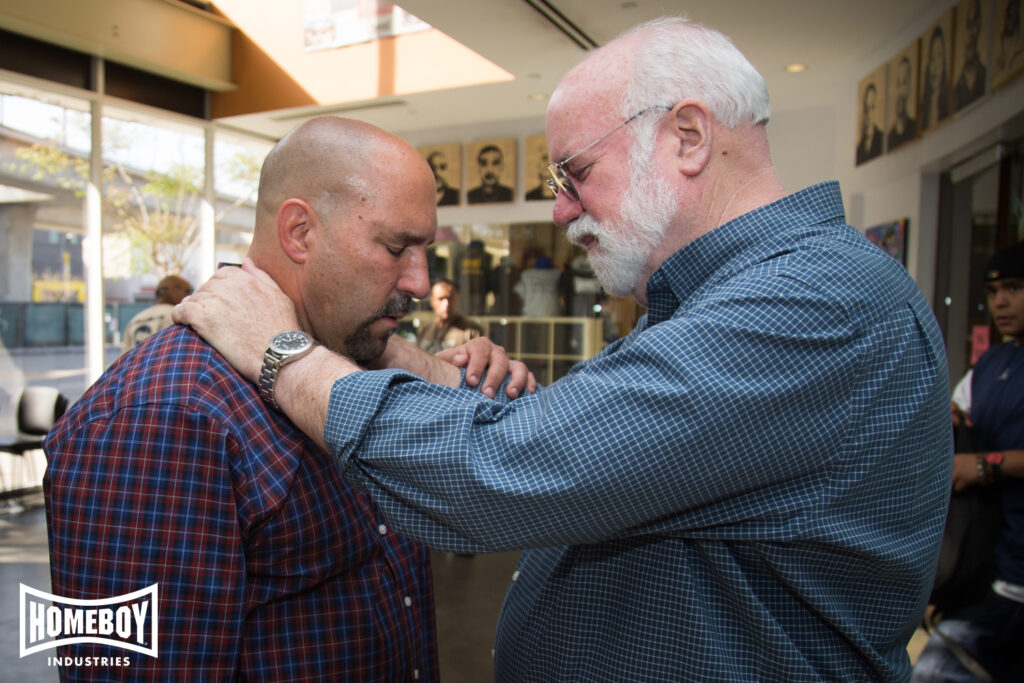
The common image of a mystic is someone who lives in a cave eating cabbage, if anything at all. Fr. Greg does not fit this image. When I had dinner with him at a Mexican restaurant, he ordered a margarita — and then another as the meal progressed. Fr. Greg says, “We have long been saddled with the notion that mysticism is some other-worldly escape, above and beyond this earthly existence.”
The famous sociologist, Max Weber, says that there are two types of mystics — inner worldly and other worldly. Clearly, Fr. Greg fits the first category. He is fully engaged in the world of gang members, the incarcerated, and people who have lost hope. As a young priest, he used to ride his bicycle around the streets of violence-prone Boyle Heights at obvious risk to himself. But this is where God lives, in his view — at the margins of society.
His awakening to poverty occurred in a year he spent in Cochabamba, Bolivia early in his career as a Jesuit. It was here that he encountered Liberation Theology and learned to appreciate the important role of spiritual “base communities,” which prepared him to serve at Dolores Mission. Over time, the idea of the base community evolved in Fr. Greg’s mind into the beloved community of tenderness. In one of his books, he states: “If love is the answer, community is the context, and tenderness is the methodology.”
While Fr. Greg affirms his Catholic identity, like a mystic, he trusts experience more than the dogma and tradition of the church. It is not exceptional for him to invite everyone to partake of the Eucharist, whether Catholic or not. In his view, God is inclusive. He says, “Mystics are joined to their experience in a nondual consciousness. Their experience is both/and, not either/or.” In his view, “Once you know the God of love, you filter things out.”
The goal is to see God as God sees. God does not see our sinfulness. In fact, he says: “I’m with Dame Julian of Norwich, who found the mystical view and did away with sin.” In his view, “The mystic’s quest is to be on the lookout for the hidden wholeness in everyone.” Stated differently, he says: “Love is God’s religion and loving is how we practice it.”
He says, “Buddha didn’t teach Buddhism — but a way of life. Jesus too.” Love is the heart of Jesus. To practice love is to be Christ-like. Our goal in life, says Fr. Greg, is to “Love each other into wholeness.”
Mysticism sees connectedness. There is not a hierarchy of goodness or the potential to be good, which is why Fr. Greg continually refers to our unshakeable goodness. In his view, “Moralism has never kept us moral. It’s kept us from each other.” Exclusivist views of Christianity have done the same, sometimes in militaristic ways.
The mystical tradition, on the other hand, sees unity and wholeness. Fr. Greg quotes Jesuit theologian Karl Rahner in one of his books: “The Christian of the future will either be a mystic . . . or he will cease to be anything at all.”
Click here to read the article on Religion Unplugged
Donald E. Miller is the co-founder of the USC Center for Religion and Civic Culture.
